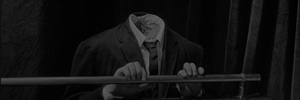So I'm in this fb group that posts film stills and the lets people guess what it's from. I thought this would be a fun thing to start on this board.
Rules:
- Film stills in this situation are excerpts DIRECTLY from the movie. No production stills, no behind the scenes footage, NO CROPPING (ratio is important) and no posters or similar material.
- GIFs are encouraged, OC GIFs even more.
- Please post films only. No series, music videos or youtube stuffs.
- Of course you can google but that takes the fun out of it so please don't.
- Hints can be given in any form. Extra stills, music, release date etc.
- Please try to wait with posting a new still until the previous one is guessed. Let's do one at a time to keep it organised.
- When you post a still, keep track of it and let us know when it had been guessed. I suggest we post imdb links along with the 'you guessed right!' post so it is easy to find out wether a still has been guessed right or not.
- Please link correctly and add 'Hint' to your post when you post a hint.
Tips:
1. Make your own stills in VLC or anything similar, they have a direct screenshot option in VLC so you don't have to printsceen your movies, printscreening results in worse quality most of the time. This also prevents reverse image searching and stuff.
2. It's a lot of fun to post well known movies with unrecognizable stills.
3. Watch out for filenames!
I guess that's it. I suggest harder stills than the one I'm posting now but let's start off easy.
